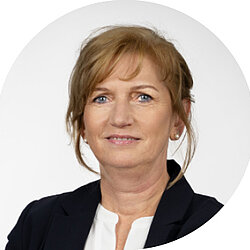Back pain is the most common complaint among the population. 80 percent of Germans suffer from back pain at some point in their lives. The reason: the spine also ages.
Causes of back pain
The most common causes of back pain include strained and cramped muscles. With increasing age, the intervertebral discs lose their elasticity and the spine therefore loses stability. The back muscles try to hold the spine in place. However, if the muscles are not strong enough, they cramp in this attempt and muscular hardening occurs.
It becomes more serious if there is a fresh slipped disc and the protruding core of the disc presses on the nerve roots or the spinal cord. The nerves are then severely irritated and become inflamed. In this case, a doctor should definitely be consulted.
Symptoms: What different types of back pain are there?
Muscular hardening causes back pain or neck pain. As a result, it is not uncommon for tension headaches to occur. Depending on the cause, however, the symptoms can also manifest themselves differently. In medicine, a distinction is made between specific (there is a specific cause) and non-specific back pain and between acute, subacute and chronic. If the back pain lasts longer than six to twelve weeks, it is chronic.
Typical symptoms of a fresh slipped disc include burning, persistent pain, tingling, numbness and even paralysis.
Diagnosis: What is the cause of back pain?
Experienced back specialists can get an initial indication of the clinical picture from the patient's posture and gait. They localize the pain and determine the trigger. They also check for any abnormalities or pain points and check the range of movement of the spine.
Imaging procedures such as computer tomography (CT) or magnetic resonance imaging (MRI) can be used to confirm the diagnosis. The ageing of the spine can be seen in the X-ray image on the basis of bone reactions. The spine stabilizes itself through bony support reactions. The severity of the support reaction is largely genetically determined.
Therapy: How is back pain treated?
Depending on the cause and symptoms, back pain can be treated in different ways. Conservative options range from physiotherapeutic treatments and osteopathic techniques to special injection procedures. For example, an inflamed nerve can be treated with a cortisone injection.
It is also important to train the back muscles as a preventative measure. This is particularly important for people who work at a desk. This is because if the muscles do not get enough alternating strain, the blood circulation in the muscles deteriorates and muscular hardening occurs more quickly.

Claudia Schnitzler-Moos
Secretariat Conservative Orthopedics
- Phone+49 2351 945-2249
- Fax +49 2351 945-2253
- sekretariat.nolte@hellersen.de
Private outpatient clinic
Phone +492351 945-2249
Fax +492351 945-2253
sekretariat.nolte@hellersen.de

Sekretariat Wirbelsäulenchirurgie
Secretariat Spine Surgery
- Phone+49 2351 945-2106
- Fax +49 2351 945-2109
- mvz.neuro@hellersen.de

Andrea Huhn
Secretariat Special Spine Surgery
- Phone+49 2351 945-2551
- Fax +49 2351 945-2552
- sekretariat.meier@hellersen.de

